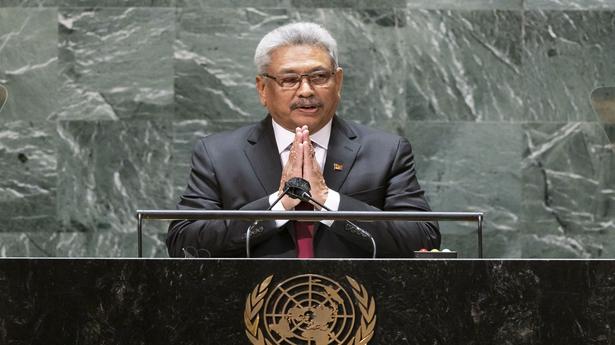
UN Human Rights Chief flags ‘setback’ to post-war accountability in Sri Lanka
The Hindu
New report comes ahead of 49th session of the UN Human Rights Council beginning on Monday
The United Nations Human Rights Chief, in a new report on Sri Lanka, has pointed to “setbacks to accountability for past human rights violations and the recognition of victims’ rights”, despite the Rajapaksa government’s recent steps aimed at reforms.
The latest report on Sri Lanka comes ahead of the 49 th session of the UN Human Rights Council in Geneva beginning on Monday. While there will be no resolution on Sri Lanka this session, an interactive dialogue on the progress made by Sri Lanka in promoting reconciliation, accountability, and human rights is expected to be held during the week.
As part of her observations in the report, High Commissioner Michelle Bachelet said transitional justice mechanisms have “struggled to achieve the confidence of victims”, while pointing to the “continuing precarious” situation of families of disappeared persons, the lack of progress and “even steps backward” in several emblematic human rights cases before Sri Lankan courts, and the culture of impunity.
The report highlighted “continuing trends towards militarisation and ethno-religious nationalism that undermine democratic institutions, increase the anxiety of minorities, and impede reconciliation.”
“The High Commissioner is deeply disturbed by the general lack of progress over the past years in most cases, and the active reversal of others, which continue to indicate the inability and unwillingness of the Government to prosecute and punish perpetrators of crimes when State agents are the alleged perpetrators,” the report said, referring to developments in high-profile cases, such as the controversial appointment of a ex-Navy chief, previously accused of abduction and conspiracy to murder 11 men in 2008 and 2009, as the Governor of the North Western Province in December 2021.
The “practical measures of reparation and development” that the Rajapaksa government emphasises will not ensure reconciliation, without a “comprehensive approach to ensure truth, justice, redress for victims and institutional reforms that guarantee non-recurrence”, the High Commissioner stressed, reiterating her earlier call to member states to explore possible “targeted sanctions against credibly alleged perpetrators of grave human rights violations and abuses”.
Further, the report also drew attention to the “multi-dimensional human rights impact on public health and economic and social rights” since the pandemic; the pending full investigation of the 2019 Easter Sunday bombings and the need for making the findings of a Presidential panel public. It urged the government to undertake “more fundamental reforms” to the country’s Prevention of Terrorism Act, considered draconian by rights advocates.













